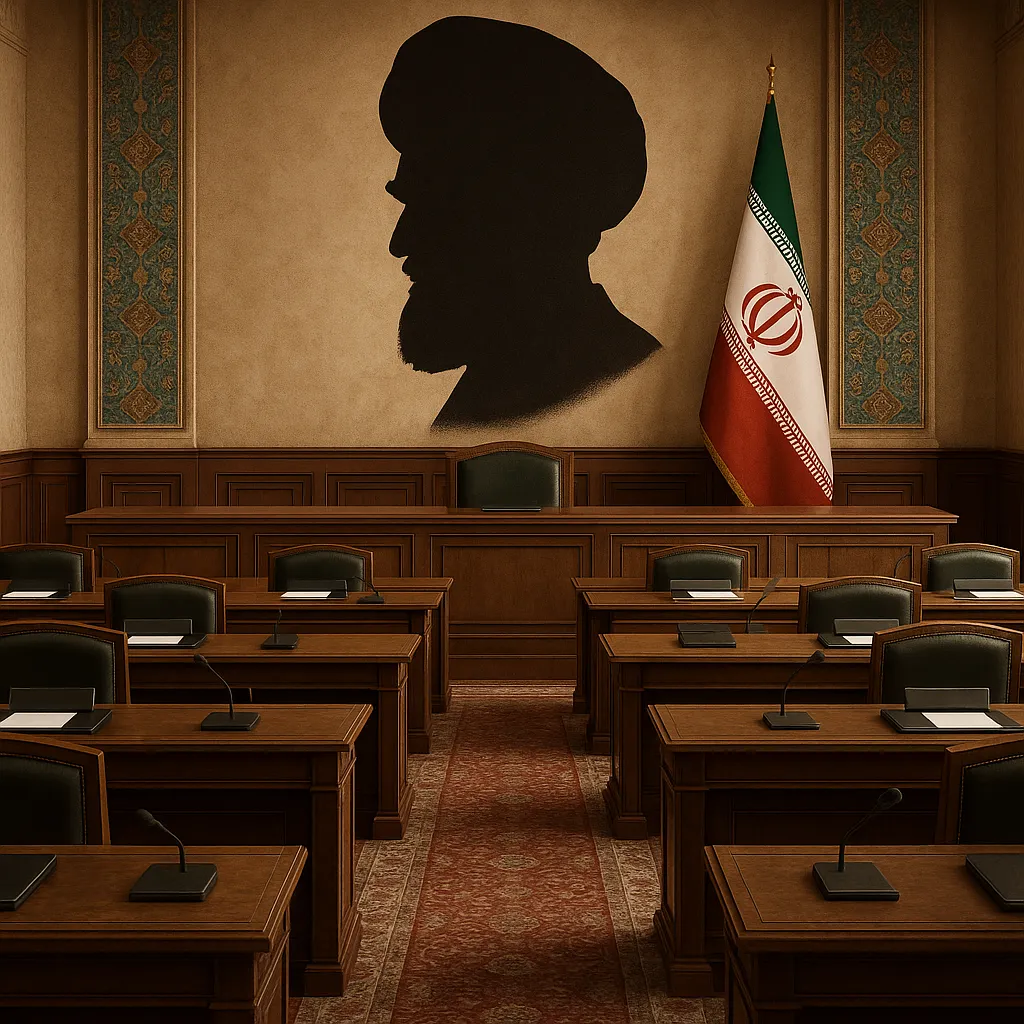Khamenei’s Postponed Cabinet Meeting Underscores Regime Crisis

Lead: Supreme Leader Ayatollah Ali Khamenei held his first cabinet session of the year on September 9-eight days after the traditional “Government Week” summit-highlighting his growing isolation and security concerns within Iran’s ruling elite.
Nut Graf: The uncharacteristic delay in meeting with President Masoud Pezeshkian’s administration signals deepening fissures inside Iran’s clerical leadership. Observers say the tardiness reflects Khamenei’s reclusive posture amid economic turmoil, factional infighting and mounting public unrest.
Meeting Delay and Crisis of Authority
- Historically fixed on August 30, the annual gathering was postponed to September 9 over “security considerations,” a break from 36 years of punctual sessions.
- The deviation underscores fears among Iran’s leadership of street protests and challenges to the Supreme Leader’s authority.
Narrative Control and Economic Directives
- Khamenei instructed officials, journalists and state media to “avoid narrating weakness” and instead amplify “the country’s strengths and capabilities,” reflecting a concerted push to suppress dissent.
- He ordered measures to guarantee affordable access to ten essential commodities, including exploring ration-card schemes to shield citizens from steep price hikes.
Foreign-Policy Posture
- Though ruling out any direct negotiations with the United States, Khamenei reaffirmed Iran’s defiance of “neither war nor peace” status, blaming external “enemies” for the nation’s hardships.
- He reiterated calls for Islamic and non-Islamic states to sever economic and political ties with the “despised Zionist regime,” framing isolation of Israel as a diplomatic priority.
Implications for Regime Stability
- The Supreme Leader’s demand for tighter media control and his absence from the public eye for an extended period feed perceptions of a leadership under siege.
- Analysts warn that persistent economic strain, snap-back sanctions threats and aggressive regional rhetoric risk inflaming domestic discontent and undermining the clerical establishment’s grip on power.
Categories
Autos and vehicles Beauty and fashion Business and finance Climate Entertainment Food and drink Games Health Hobbies and leisure Jobs and education Law and government Other Politics Science Shopping Sports Technology Travel and transportationRecent Posts
Gunman Arrested After Country Club Wedding Shooting in Nashua
Trump, Vance Honor Charlie Kirk at Massive Arizona Funeral
DOJ Closes Bribery Probe into Border Czar Tom Homan
Bad Bunny Concludes Puerto Rico Residency with Star-Studded Amazon Livestream
Multiple Shot, Including One Fatality, at Sky Meadow Country Club
Bad Bunny Delivers Historic “Una Más” Livestream Finale from Puerto Rico
‘28 Years Later’ Arrives on Netflix, Three Months After Theatrical Debut
Cyberattack Snarls Check-In Systems at Major European Airports
Premier League Sees Upsets as Liverpool Edges Everton
Chelsea’s Adarabioyo Drafted In After Sanchez Sent Off at Old Trafford
Superman Premieres on HBO Linear Tonight as Streaming Hit
Southern Skies to Darken: Partial Solar Eclipse Looms Tomorrow
Venus’s Square with Uranus Fuels Independence in Today’s Horoscopes
Dublin Airport’s Terminal 2 Evacuated and Reopened After Security Alert
Tell me what happened today 09/20/2025: “tcu” and write it in news format in English.
Clemson University Dismisses Three Employees After Free Speech Controversy
Braun Strowman Unveils USA Network Series and Horror Sequel Role
Noem Launches National ICE Initiative via Social Media
Binance Implements Margin and Leverage Adjustments on September 20, 2025
Spurs Salvage Late Draw at Brighton
Tags
Archives
08/19/2025 (3) 08/20/2025 (40) 08/21/2025 (27) 08/22/2025 (22) 08/23/2025 (4) 08/24/2025 (21) 08/25/2025 (30) 08/26/2025 (24) 08/27/2025 (29) 08/28/2025 (16) 08/29/2025 (9) 08/30/2025 (13) 08/31/2025 (17) 09/01/2025 (167) 09/02/2025 (124) 09/03/2025 (149) 09/04/2025 (112) 09/05/2025 (72) 09/06/2025 (169) 09/07/2025 (162) 09/08/2025 (150) 09/09/2025 (176) 09/10/2025 (194) 09/11/2025 (194) 09/12/2025 (186) 09/13/2025 (207) 09/14/2025 (159) 09/15/2025 (175) 09/16/2025 (198) 09/17/2025 (196) 09/18/2025 (196) 09/19/2025 (207) 09/20/2025 (129) 09/21/2025 (4)